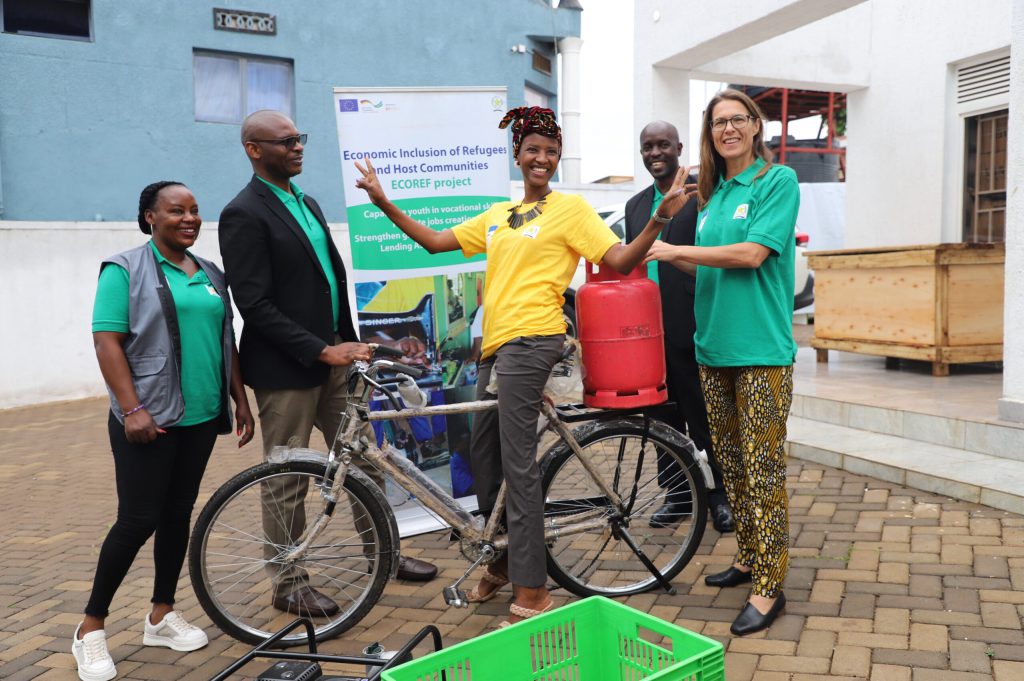Refugees and host communities in Rwanda are set to benefit from expanded access to jobs, essential services, and climate-resilient infrastructure under a new US$66.7 million project approved by the World Bank.
The Socio-Economic Inclusion of Refugees and Host Communities Project – Phase II, locally known as Jya Mbere II, aims to reach approximately 380,000 people, including 115,000 refugees and 265,000 host community members across six districts.
The initiative builds on the achievements of the first phase, which demonstrated how inclusive investments in infrastructure and livelihoods can improve outcomes for both displaced and local populations.
The project is funded through the World Bank’s International Development Association (IDA), including US$27.4 million from the Window for Host Communities and Refugees.
It aligns with Rwanda’s strategy to promote refugee self-reliance while easing pressure on host communities.
Jya Mbere II will focus on expanding access to education, health care, clean water, roads, and market infrastructure.
All infrastructure will be built to national and climate-resilient standards. The project is expected to create over 10,000 jobs, mainly through labor-based public works and support for small enterprises, with targets to ensure the participation of women and youth.
Key investments include the rehabilitation of roads in Gatsibo and Kirehe districts to improve market access, and the construction and upgrading of schools and health centers to reduce overcrowding and integrate refugees into public systems.
Marketplaces and production centers will also be established to support local trade and employment.
A graduation program will assist vulnerable households with training, productive assets, and access to financial services.
Mathew Stephens, Lead Social Development Specialist at the World Bank, said the project reflects Rwanda’s leadership in delivering durable and inclusive solutions to displacement.
He said the initiative is about building services that support integration, jobs that offer dignity, and systems that improve community resilience.
As refugee situations in the region remain protracted, Jya Mbere II addresses the urgent need for development-focused solutions.
Most refugees in Rwanda live in rural camps with high poverty rates, limited economic opportunities, and restricted access to services.
The project aims to tackle these challenges while leveraging the presence of refugees to boost local economic growth.
World Bank Country Manager for Rwanda, Sahr Kpundeh, said the second phase of the project goes beyond improving service access to deepening economic inclusion and enhancing climate resilience for families.
To help communities withstand climate-related shocks, the project will include flood control systems, rainwater harvesting, and landslide protection measures, especially in vulnerable districts such as Karongi, Nyamagabe, and Kirehe.
The Ministry in Charge of Emergency Management (MINEMA) will lead the implementation of the project, in collaboration with local governments, the Rwanda Transport Development Agency, the Development Bank of Rwanda, the Business Development Fund, and financial institutions.
Refugee and host community members will participate in planning and implementation through consultations.
Jya Mbere II is aligned with Rwanda’s National Strategy for Transformation and the forthcoming Refugee Sustainable Graduation Strategy (2025–2030).
It also contributes to global commitments under the Global Compact on Refugees by promoting the inclusion of displaced populations in national development systems.
